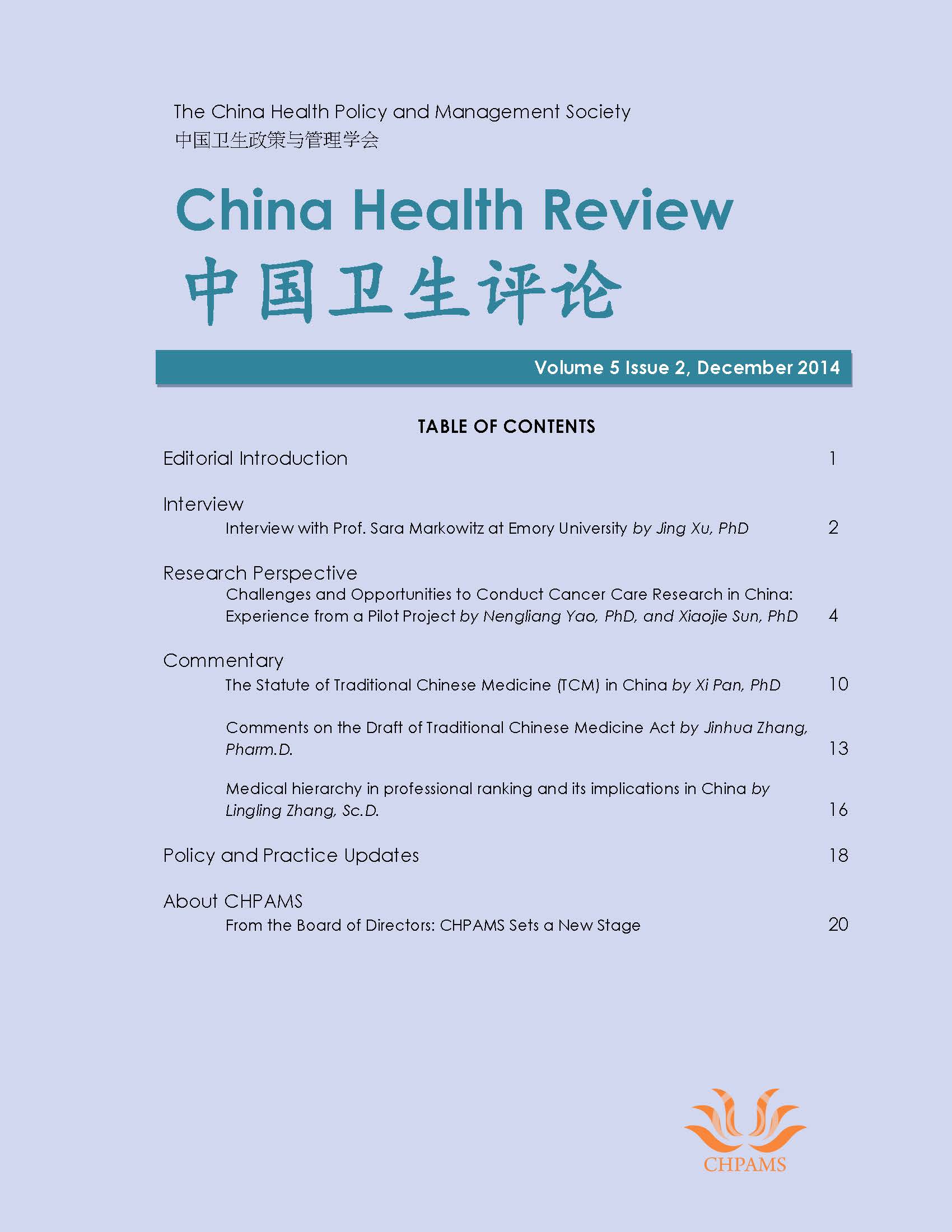The Statute of Traditional Chinese Medicine (TCM) in China
Abstract
This commentary discusses the significance and improvement of the drafted regulation on Traditional Chinese Medicine (TCM) proposed by the Chinese government. The draft regulation is significant in emphasizing the need of evidence-based scientific and evaluation research of TCM; guiding the design of deliverable and high-quality TCM healthcare service to urban as well as rural communities in China; and confirming the scientific value of TCM. However, a few sections in the draft need to be readdressed and spelled out. Pharmaceutical formulae and medicine production shall require license and certification; experienced TCM professionals should be invited to teach and evaluated by students to substitute the “master-to-apprentice” training; specific plans that lead to qualitative change of TCM and legal liability related to TCM practice need to be elaborated; and the consequence of violation of the regulation shall be specified.References
Arcury, T. A., Bell, R. A., Snively, B. M., Smith, S. L., Skelly, A. H., Wetmore, L. K., & Quandt, S. A. (2006). Complementary and alternative medicine use as health self-management: Rural older adults with diabetes. Journal of Gerontology Series B: Psychological Sciences and Social Sciences, 61(2), S62–S70.
Gu, Y., Zhang, Y., Shi, X., Li, X., Hong, J., Chen, J., … Ning, G. (2010). Effect of traditional Chinese medicine berberine on type 2 diabetes based on comprehensive metabonomics. Talanta, 81, 766–772.
Konkimalla, V. B., & Efferth, T. (2008). Evidence-based Chinese medicine for cancer therapy, Journal of Ethnopharmocology. 116, 207–210.
Lao, L., Xu, L., & Xu, S. (2012). Traditional Chinese Medicine, A. Längler et al. (eds.). Integrative Pediatric Oncology, Pediatric Oncology (pp.125–135). Berlin Heidelberg: Springer-Verlag.
Qiu, J. (2007). A culture in the balance: Traditional Chinese medicine and Western science face almost irreconcilable differences. Can system biology bring them together? Nature, 448, 126–128. doi:10.1038/448126a
Xu, Y., Toobert, D., Savage, C., Pan, W., & Whitmer, K. (2008b). Factors influencing diabetes self-management in Chinese people with type 2 diabetes. Research in Nursing & Health, 31, 613–625.
Xu, W., Towers, A. D., Li, P., & Collet, J.-P. (2006). Traditional Chinese Medicine in cancer care: perspectives and experiences of patients and professionals in China. European Journal of Cancer Care, 15, 397–403.
Yu, F., Takahashi, T., Moriya, J., Kawaura, K., Yamakawa, J., Kusaka, K., … Kanda, T. (2006). Traditional Chinese Medicine and Kampo: A review from the distant past for the future. The Journal of International Medical Research, 34, 231–239.

